Is it possible to flush the cat litter down the toilet:
Cat litter - which can be flushed down the toilet, is the dream of many owners. Indeed, it is much more convenient to simply dump the used material into the sewage system, rather than collect it in bags and throw it into the garbage disposal.
However, in reality, the situation is somewhat different: the ingress of a large amount of any cat litter into pipes can cause congestion. And instead of saving power, we will get a rather serious problem, the solution of which will have to spend a lot of time. In order to prevent such a development of events, you should carefully read the tips given in our article.
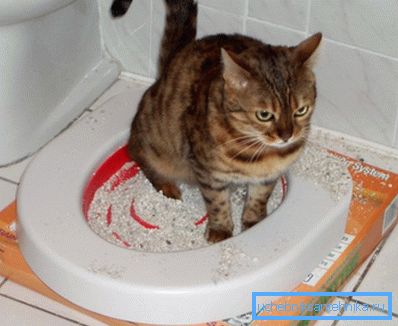
Fillers and sewage
Types of fillers
The answer to the question whether wood filler can be flushed down the toilet depends directly on the material from which the filler is made. And although manufacturers of almost all varieties do not recommend using this method of disposal, some substances still tolerate flushing better than others.
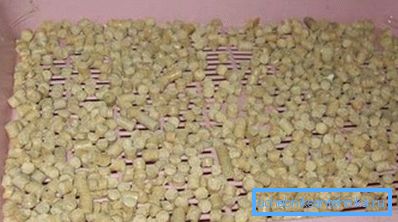
The most popular types of cat litter include:
- Woody - made from pressed sawdust, sometimes flavoring impregnations are added to the composition. When moisture enters the wood at first it stratifies, and then begins to clump. Among the main advantages of this material - environmental friendliness, relatively low price, ease of disposal, the absence of toxins. At the same time, the material requires regular replacement, otherwise the unpleasant smell will appear as early as 4–5 days after fresh backfilling.
Note! Practice shows that odors of a variety without aromatic impregnation absorb best of all. Shavings of pine and fruit trees smell so good, and when mixed with feline waste products does not form a nauseous "cocktail" that often happens with citrus or fruit flavors.
- Mineral - made on the basis of bentonite clay and other substances with high adsorption capacity (zeolite, vermiculite). It crumples reasonably well, which facilitates the removal of the spent part of the material with a scoop. The main advantage of clay materials is that they can very quickly absorb a large amount of liquid, leaving almost no smell.
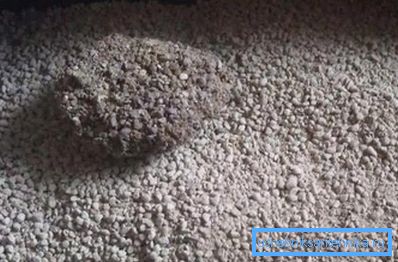
- Silica gel - the most modern and practical, not displaced other varieties from the market only because of high cost. Requires replacement every two to three weeks, almost completely binds all odors. However, you should not use it for kittens, as they often gnaw granules, which can lead to unpleasant consequences for health.
As we noted above, the instruction from the manufacturer of most of these materials recommends throwing them out with municipal solid waste. All products of this type are non-toxic, because of any serious pollution of the environment we are not talking.
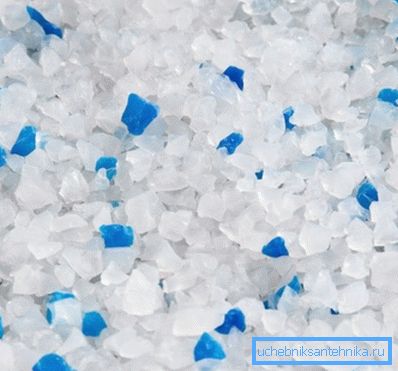
However, many of us are trying to reduce labor costs by washing the waste contents of the cat litter down the drain. Let's see if this can be done?
Recycling Methods
The material from which the filler is made determines its behavior when it comes into contact with the fluid. Accordingly, it directly depends on whether the waste passes through the pipe or is stuck in it, forming a cork.
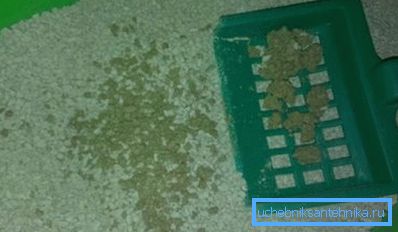
You will find the answers to this question in the table below:
| Kind of filler | Possibility of flushing down the toilet |
| Woody |
|
| Mineral |
|
| Silica gel |
|
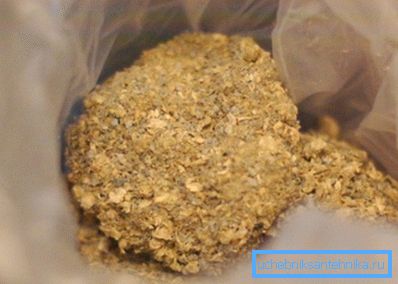
Summarizing all the above, it should be noted: it’s not worthwhile to create problems with your own hands, washing away into the sewage inappropriate for this substance. It is better to collect and discard the contents of the cat litter, or (in the case of tree and mineral species) lay it in a compost pile.
Techniques to eliminate blockages
Mechanical pipe punching
If the trouble still occurred, and as a result of hitting a large amount of filler sewage "got up", you must take action.
You can fight the blockage like this:
- If the incident has just occurred, and the bulk of the material is in the toilet, you need to remove it from there as soon as possible. To do this, we put a rubber glove on our hand and rake out everything we can reach.
Tip! If there is no glove, you can wrap your hand in a plastic bag.
- After manual cleaning of the toilet bowl, it is necessary to push the remains (there should be relatively few of them) into the pipe itself. To do this, we install a plunger on the drain hole, press the rubber socket tightly to the surface and start pumping it, as during normal cleaning.
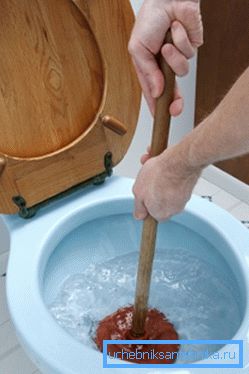
- In order to work more efficiently, it is advisable to add a small amount of water to the toilet. However, do not overdo it - if the cork turned out to be very dense, then water will have to be removed using the method of scooping.
- When a filler made of sawdust got into the pipes, the plunger should suffice. But bentonite is able to block the gap "tightly", so that the tube will have to be broken mechanically.
- To do this, use the cable with a special nozzle, which is screwed into the mash and destroy it. Our goal is to pierce the hole in the center of the pipe, and then the water flow will gradually wash up the pollution.
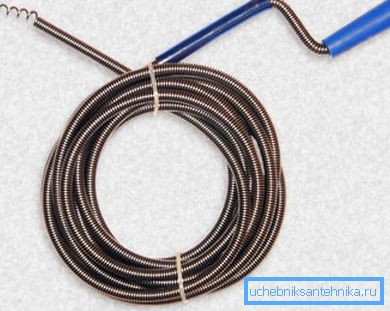
Chemical methods
In some cases, the filler does not form congestion, but simply accumulates in the drain and reduces the throughput of the sewage system.
Here you can cope with the situation with the help of chemicals:
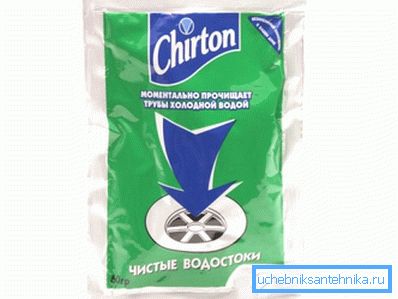
- The granulated powder is poured into pipes in the most problematic place.
- Add a small amount of water and leave for about 20-30 minutes for the reaction.
- After that, thoroughly flush the system, several times draining the water from the tank.
- Acidic remedies are considered to be the most effective because they destroy the organic matter that has accumulated in the sewage system well.
Conclusion
On the one hand, the discussion about whether cat litter can be thrown into the toilet does not have the only right decision: some varieties completely allow for disposal in this way, and some are better not to be drained into pipes to avoid clogging of the sewer system. And yet it is much better to just collect the waste contents of the tray and throw it in the trash - so we will be sure that there will be no problems.
The issue raised is discussed in more detail in the video in this article, because cat owners should watch it very carefully.